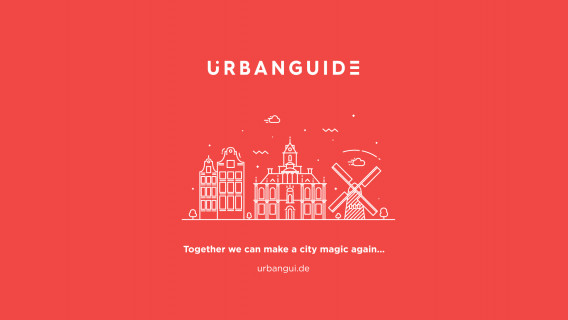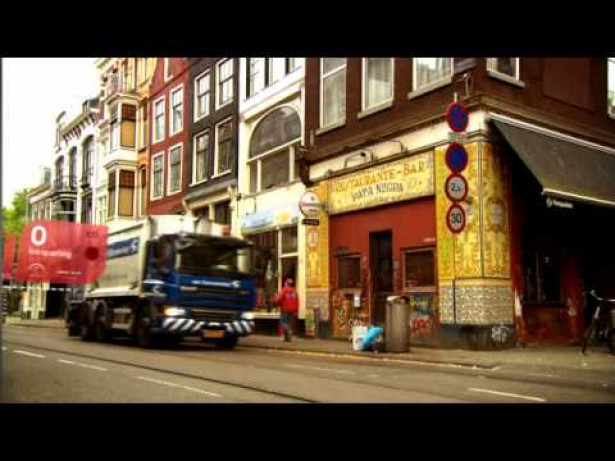Guiding you straight to the things we love about our cities
For more information, check out our pitch presentation:
<img height="1" width="1" src="https://www.facebook.com/tr?id=1554884584763249&ev=PageView&noscript=1"/>

Guiding you straight to the things we love about our cities

<img height="1" width="1" src="https://www.facebook.com/tr?id=1554884584763249&ev=PageView&noscript=1"/>
What if? You could give somebody the possibility to experience and fall in love with your city in the way you do?
We believe that the magic of a city lies in the eyes of it’s residents. When visiting a city, it are not the big monuments that make you fall in love with the city. It are the little things that can turn a city into a magical experience. Those places are the hidden treasures of a city that you don’t find that easily online. Urbanguide is a unique platform where local residents can create digital city experiences based on their interests. By matching the interests of a tourist with the interests of a local resident, a tourist can interact with the resident and, for a small amount of money, download the digital city experience.
Maybe you are into gardening or photography. Together with the local residents we will make sure that you will have a day with the best photography or gardening hotspots in the city you aim to visit. For a small amount of money you can download the guide into our app that will help you navigate through the city.
We are Urbanguide, together we can make a city magic again.
Tourism is an important factor for the city of Amsterdam. In the past few years we have seen a rapid growth of city visitors. In 2016 Amsterdam had over 17.000.000 visitors and based on the research of the department Stad in Balans, we know that this figure will double in the following 10 years. The big number of visitors is also having a negative effect on the city. Big touring agencies are collecting all the money and the citizens have to cope with the negative effects such as screaming groups of tourists at night, travel trolleys and tourists standing on the bicycle paths. Our goal is to use the benefit of growth in tourism and make sure that the residents of the city can also make a profit in this.
The project is initiated by Sticky Bandits, a digital native agency that is specialized creating digital solutions for offline problems.
We aim to launch our Beta platform in Q2 of 2017
Get notified about new updates, opportunities or events that match your interests.

In 1901, sixteen dairy farmers in the vicinity of Amsterdam, decided to establish the "Ilpenstein" cheese factory. My grandfather, Piet Nieuweboer, was one of the directors of the cooperative. The reason for collaboration within the cooperative? Cheesemaking traditionally takes place at the farm itself. The cheese factory made it possible to use innovative cheesemaking techniques. Even more important was the collaboration to improve the distribution and marketing of the cheese towards customers.
With the course "Biologisch Tuinieren in de Stad", we have trained almost two hundred new urban farmers in the city of Arnhem. Organic urban farmers with a food garden of half a square meter till half a hectare. It is a dream that these organic urban farmers, and others, will eventually find and learn from each other. Our initiative is the establishment and growth of the "Biologische Stadsboeren Coöperatie Arnhem Groen". An organic urban farmers' cooperative focused on economic collaboration in a green Arnhem.

Michiel Bontenbal will give a practical update on running open source LLM’s locally
De workshop is in het Engels maar we spreken ook Nederlands!

Join us for the workshop: Civic Sousveillance & Democratic Oversight of Sensor Technology.
In this interactive workshop, we explore democratic oversight of camera detection and other urban sensors: from citizen initiatives such as the On Camera pocket guide and smart city camera-spotting tours to current policies on data collection in public space.
With contributions by Tom van Arman & Mike de Kreek from the Human Values for Smarter Cities research project, Inge Janse & Arthur De Jaeger from Centre for BOLD Cities, and council member Elisabeth IJmker from GroenLinks-PvdA. Next to talks we will also go outside for a joint camera-spotting tour around Arcam.
Date: Thursday, January 29, 2026
Time: 4:00 p.m. – 6:00 p.m.
Location: Arcam
Address: Prins Hendrikkade 600
Language: Dutch
Registration: free, but mandatory via the registration form which is here
More info on the Human Values for Smarter Cities research project is here


@reneterhaar Hi René, the difference between us and trip4real is that we focus on digital guides instead of activities. Our goal is to create a unique city experience through a written guide that is easy to make by local citizens. The big advantage is that the citizen can sell their guides through the platform for a small price.
@chrishudepohl
How does this compare with trip4real.com ?
See also: https://techcrunch.com/2016/09/19/airbnb-acquires-travel-activities-marketplace-trip4real/